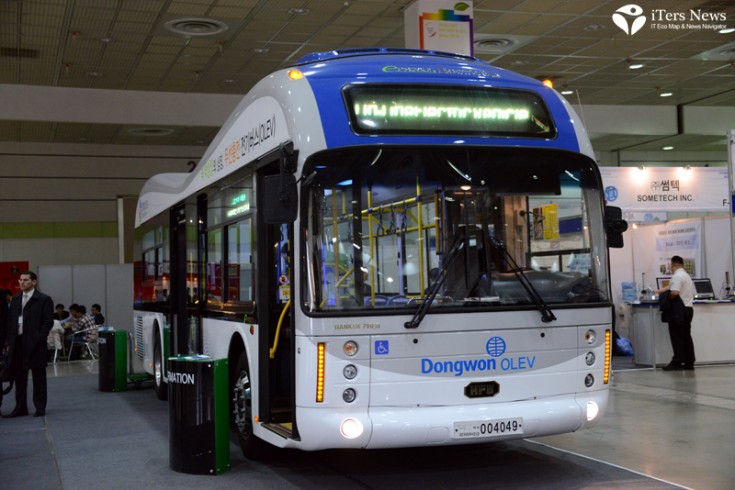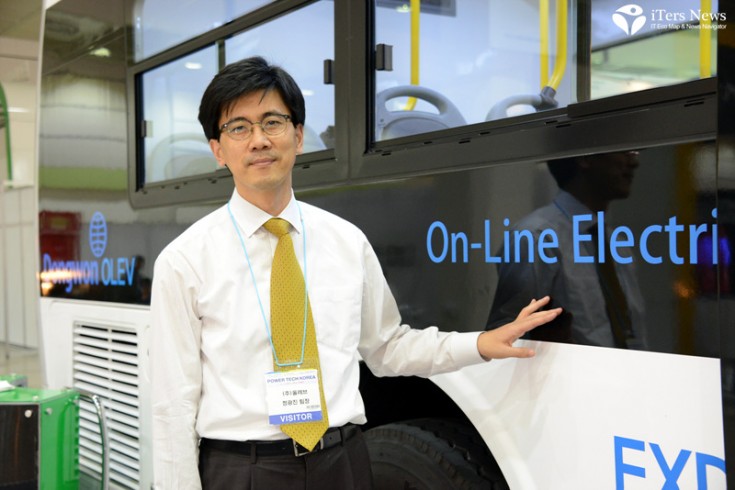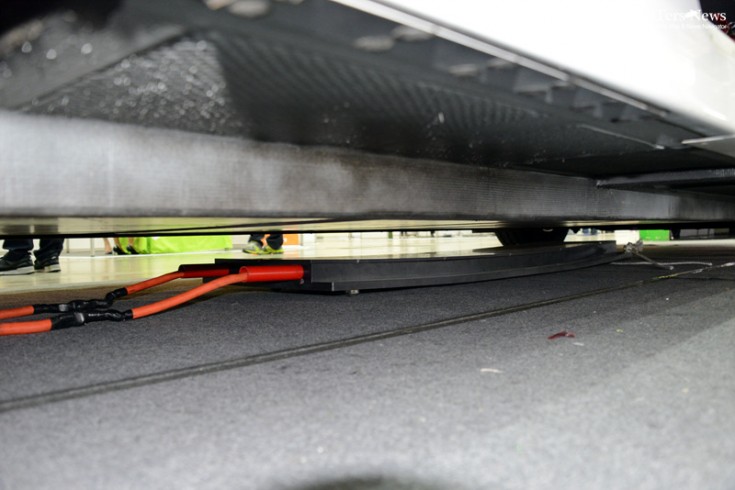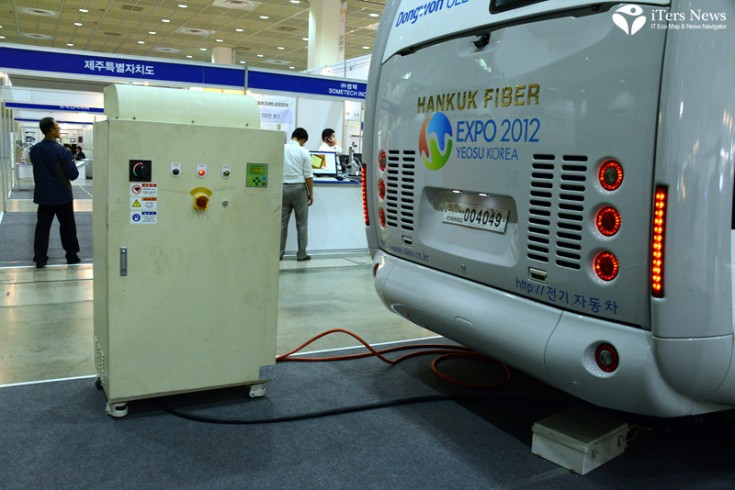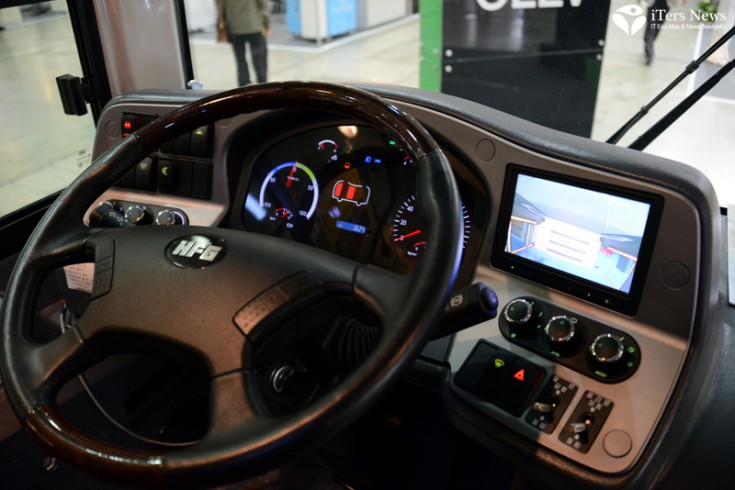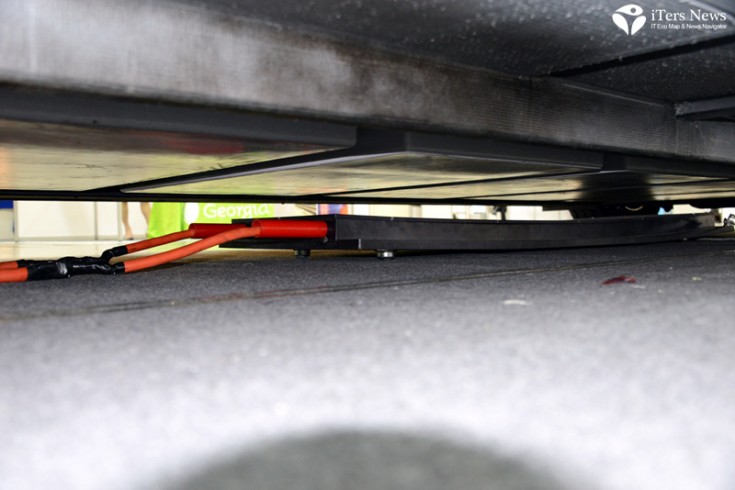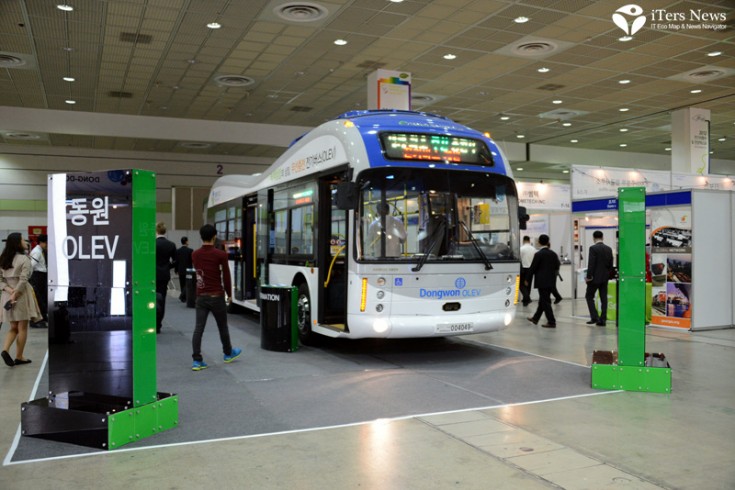(iTers News) - When it comes to non-contact wireless charging system for electric vehicles, Korea is a second to none in the world.
OLEV Co., Ltd. of Korea has a new generation of home-grown wireless charging system called as a shaped magnetic field in resonance, or SMFIR technology, go through the Korean government’s safety certification test for the commercial roll-out in 2013.
Developed by a state-funded KAIST, or Korea Advanced Institute of Science and Technology, the SMFIR wireless charging pad creates and uses a magnetic resonance field to wirelessly charge up EV’s battery storage system.
The working theory is straightforward. Plugged into the electricity power generator, the SMFIR wireless charging system couples a source resonator on the ground and a capture resonator mounted underneath a vehicle, which are 20cm apart from each other, to wirelessly transfer electrical power.
Jung Kwang-Jin, general manager with OLEV Co., Ltd. gave a quick demo on how the SMFIR wireless charging system powers up a fleet of electric vehicles like cars and buses.
Take OLEV’s online electric vehicles on display at Korea EV trade show running from Oct. 17 to 19, for example.
Plugged into the in-door electric generator of 380V, the SMFIR charging system on the ground wirelessly powers up its online electric vehicle’s battery storage system by creating a magnetic resonance field.
According to him, the commercial deployment of the SMFIR charging system will require the wireless charging pad to be buried under the exclusively reserved driveways for EVs to continuously charge up electric vehicles, while they roll to a stop, or are on the move.
Once the company gets the government safety and reliability certification on its fleet of on-line electric vehicles and SMFIR charging system this year, the company expects the commercial roll-out to gain speed starting from 2013.
Yet, the system has a long way to go before it hits critical mass. One of the most challenging issues is how to make them more compact and affordable.
The SMFIR charging system now fetches for about US$100,000.
OLEV is a joint-venture company between Dongwon group of Korea and KAIST.


